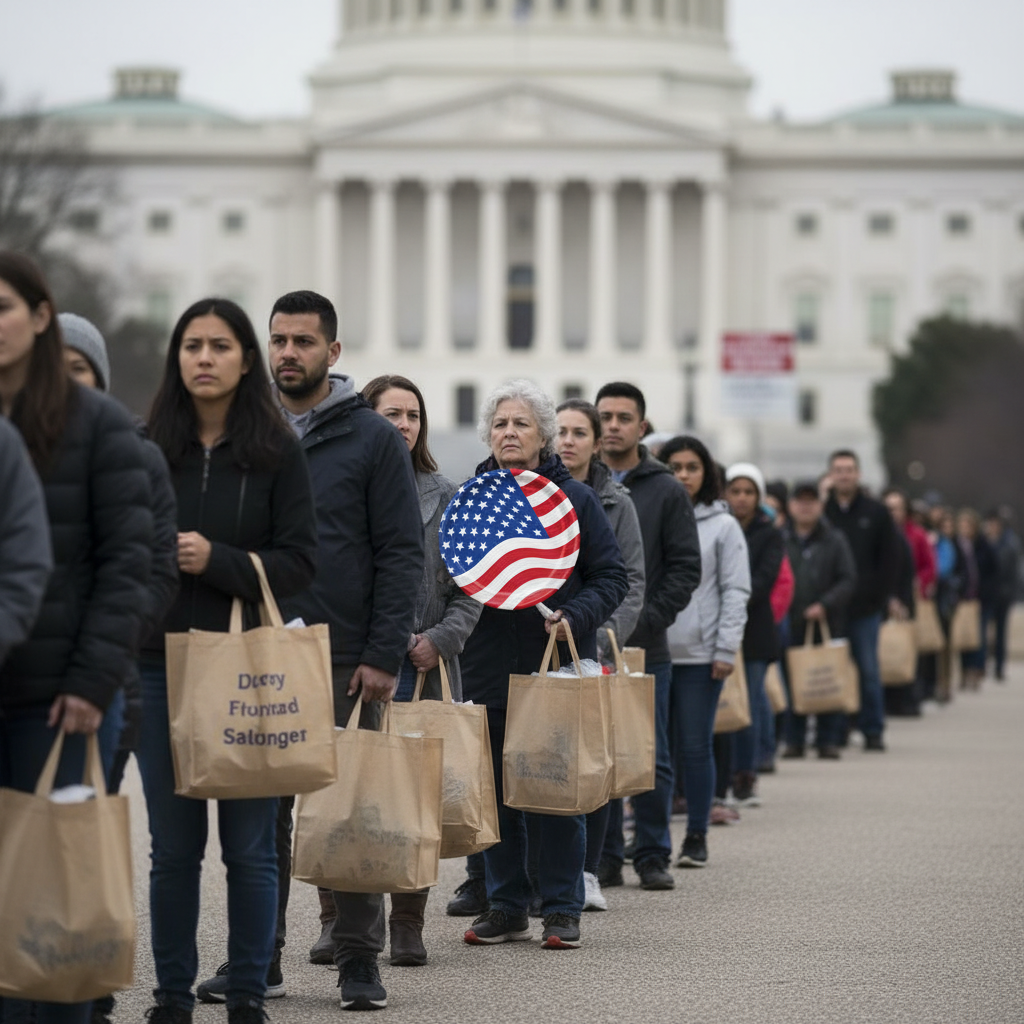Millions Face Food Aid Crisis as U.S. Government Shutdown Drags On

U.S. Government Shutdown Fuels Food Aid Crisis
Millions of Americans are at risk of losing food assistance as the U.S. government shutdown continues. Fox News reports that the shutdown is disrupting food distribution, exacerbating hardship for vulnerable populations. There are growing concerns that a prolonged government paralysis could intensify chaos across society.
- Experts predict the shutdown will severely worsen food access for low-income individuals and families.
- The cessation of food aid poses a direct threat to the health of vulnerable groups, including children, the elderly, and people with disabilities.
- Politicians are negotiating to resolve the shutdown, but have yet to reach an agreement.
- Food aid organizations are urging the government to resolve the issue swiftly and are exploring their own support measures.
Background to the Prolonged Shutdown
This shutdown stems from disagreements within the U.S. political arena during the budget process. The two parties have failed to find common ground on key issues, leading to a failure to secure funding necessary for government operations. While the immediate cause of the shutdown is political conflict, analysts suggest fundamental differences over economic policy direction underlie the problem.
Political gridlock is delaying the passage of the government budget, which has directly resulted in the government shutdown. If the shutdown persists, various government functions could be paralyzed, causing inconvenience to citizens. In particular, there is a high possibility of disruption to support systems for vulnerable groups, such as social welfare and public services.
Impact of Food Aid Suspension
The suspension of food aid is expected to directly impact low-income households. Vulnerable groups, including children, the elderly, and people with disabilities, are particularly at risk of health problems due to food shortages. Food aid organizations are urging the government to resolve the issue swiftly and are exploring their own support measures.
Government food assistance programs have played a vital role in supporting food security for low-income populations. If this assistance is interrupted by the shutdown, many could face difficulties in maintaining a basic standard of living. Food shortages could not only lead to health deterioration but also potentially to social unrest.
Some regions are already experiencing disruptions in food distribution, and the number of people unable to access food assistance is growing. The longer the shutdown lasts, the more severe the food shortage problem is expected to become. Social welfare organizations are providing support to those struggling through emergency relief efforts, but a fundamental solution at the government level is urgently needed.
Political Stances
The two parties are negotiating to resolve the shutdown, but there has been no significant progress yet. Both Democrats and Republicans have urged the swift passage of the budget, emphasizing the need to minimize damage from a prolonged shutdown. There are increasing calls for bipartisan cooperation to resolve the shutdown crisis.
The two parties have been unable to narrow differences in budget size and policy priorities, causing negotiations to stall. Each party is maintaining its position and blaming the other. While compromise is critical to resolving the shutdown, it does not seem likely at this time.
Citizens are expressing disappointment with the political ineptitude and are demanding a swift resolution. Those affected by the shutdown are expressing distrust in politicians, and politicians cannot ignore this public sentiment. The shutdown crisis could undermine public confidence in politicians.
